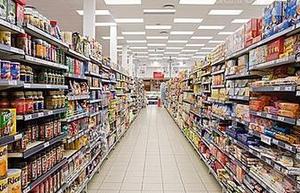Chinese retailers are now faced with the dilemma resulting from the Chinese consumers' increasing awareness of the safety of refrigerated and frozen food but unwillingness to pay more.
A cold chain logistics report released by Emerson Climate Technologies on Thursday shows that 91 percent of the 548 respondents have confidence in the large supermarkets' capability of properly storing and delivering refrigerated and frozen food. But 47 percent of them are not willing to pay more for the cost of food storage and refrigeration.
Milk, yogurt, frozen food and ice cream are the most frequently purchased items in supermarkets. About 64 of the polled consumers said they have been to the supermarkets and convenience stores more frequently in the past 12 months because the food provided there is much fresher and of better quality. About 60 percent of them believe that the sources of these items are more reliable.
Ram Krishnan, president of Emerson Climate Technologies Asia, said Chinese food retailers are faced with the difficulty of ensuring the quality of refrigerated and frozen food more effectively throughout the entire supply chain.
"Meanwhile, they have seen the urgent need of upgrading their refrigeration facilities. However, retailers find it difficult to recover their cost with very low profit margin," he said.
Sarna Yeung, partner and co-leader of the transportation and logistics competence center at consultancy firm Roland Berger Greater China, agrees that Chinese consumers currently have low willingness to pay higher prices for fresh cold chain services.
The market urgently needs to cultivate cost-conscious cold chain logistics for these consumers. Cold chain logistics companies also operate on thin net profit margins.
"Model innovation is particularly important," said Yeung.
Even though the Chinese consumers have been frequenting supermarkets more often, 24 percent of the polled consumers said they will turn to e-commerce platforms for perishable food. Emerson said that they will seek more cooperation with these fresh food e-commerce service providers in the areas such as warehouse and distribution.
With the rapid rise of e-commerce cold chain logistics, leading e-commerce platforms that sell fresh goods, including Taobao.com and Yihaodian.com, ambient logistics companies like SF express, and food retail companies such as Zhangzidao Group Co Ltd are reaching across industry lines to step into the market, forming a new competitive landscape. Such cross-industry competition will facilitate the integration of e-commerce and logistics. A mature business model and accelerated market integration are on the horizon, as Roland Berger experts found out.
According to Roland Berger, macroeconomic policies and market demand will drive the growth of Chinese cold chain logistics into a 470 billion yuan ($76 billion) industry at rate averaging 25 percent annually until 2017.
|
 |
 |
| Homegrown firms rule the roost in retail, report says | Retail sales of consumer goods in Golden Week reach 690 million yuan |
